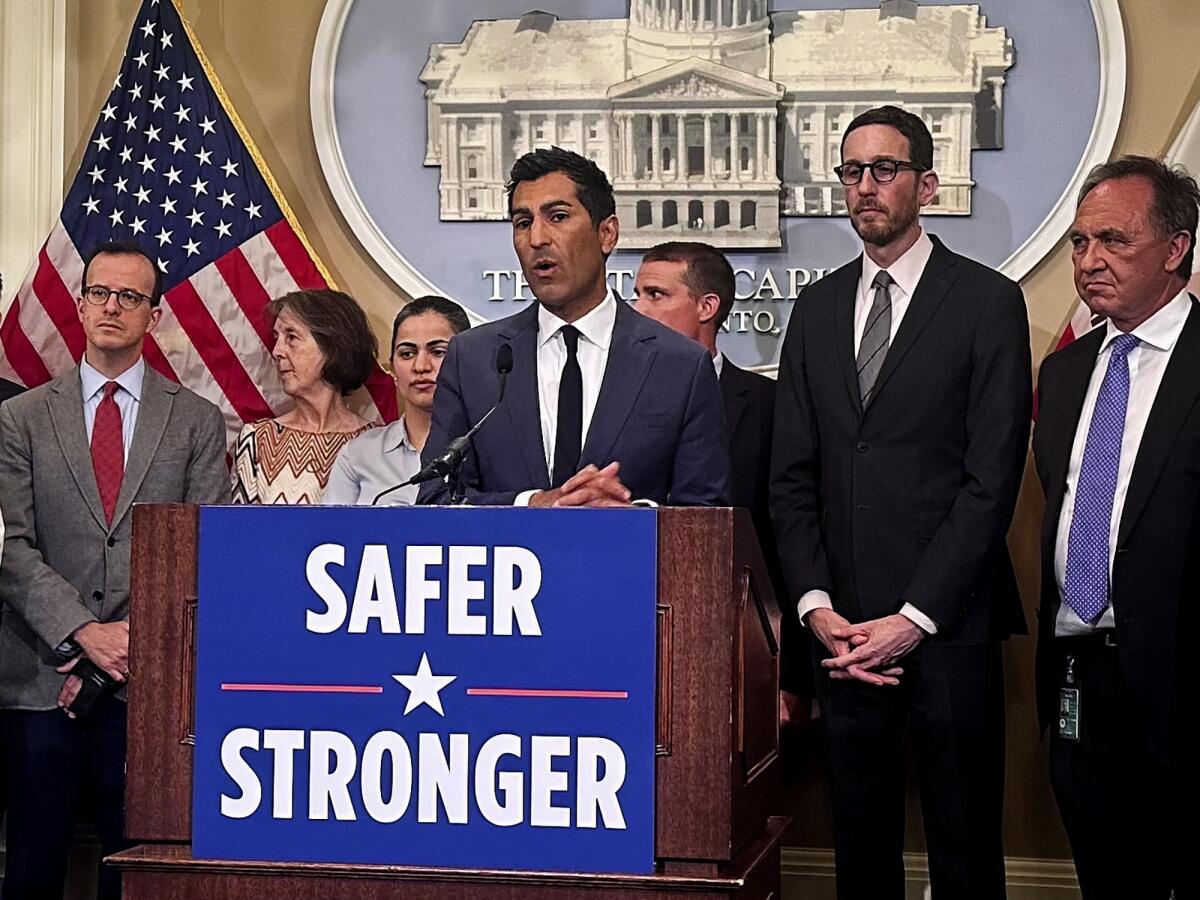Newsom signs another retail theft bill amid rising concerns about crime in California

- Share via
SACRAMENTO — Gov. Gavin Newsom on Thursday signed the last of a bundle of retail theft bills crafted by Democratic lawmakers to address the rise in organized retail theft crimes that have shaken Californians.
“California already has some of the strictest retail and property crime laws in the nation — and we have made them even stronger with our recent legislation,” Newsom wrote in a statement released Thursday morning. “We can be tough on crime while also being smart on crime — we don’t need to go back to broken policies of the last century.”
The new law is the last of 13 pieces of legislation that have been at the center of a political saga that took place at the state Capitol this summer over how the state should address organized property crimes. The legislation Newsom signed Thursday, Assembly Bill 1960, will add tougher penalties for individuals who take, damage or destroy property while committing any felony.
“I authored this new law to hold appropriately responsible those who damage stores and property because our business owners and workers should not have to live in fear that these crimes will come to their doorstep,” said Assembly Speaker Robert Rivas (D-Hollister) on Thursday. Rivas took over as author of the bill in late June, after the original author, Assemblymember Esmeralda Soria (D-Merced), received some backlash from opponents.
California Gov. Gavin Newsom on Friday signed 10 bills in what he is calling an unprecedented effort to combat escalating retail crimes and car thefts.
Advocates from the Vera Institute of Justice along with a coalition of criminal justice reform organizations are alarmed that language in the bill is “identical” to parts of Proposition 36, a November ballot measure opposed by Newsom and Rivas, and that has divided lawmakers and law enforcement across the state. If passed by voters, the initiative would reform a decade-old law that reduced sentences for low-level, nonviolent property and drug crimes.
The coalition fears the law could add years of prison time to individuals for a wide range of conduct far beyond retail theft, calling it a “one-size-fits-all” policy.
“[The bill] would increase prison time based on accidental behavior, because there is no requirement that the damage was intentional,” advocates wrote a letter to Newsom on Aug. 30 urging for a veto of the bill. “That means AB 1960 could add years of prison time for a car accident while driving under the influence.”
Rivas told The Times in late August that the difference between his bill and the ballot measure is the inclusion of a sunset clause, which will make the bill expire on Jan. 1, 2030. Bills can include expiration dates to allow lawmakers to review the impacts of that law after it’s been implemented.
A source who worked on the retail theft laws said AB 1960 originally didn’t get signed along with the 10 other pieces of retail theft legislation, because of ongoing conversations that took place between the Newsom administration, the Legislature, and retailers who wanted to decide if any changes should be made.
California District Attorneys Assn. and law enforcement groups supported the bill.
More to Read
Sign up for Essential California
The most important California stories and recommendations in your inbox every morning.
You may occasionally receive promotional content from the Los Angeles Times.











